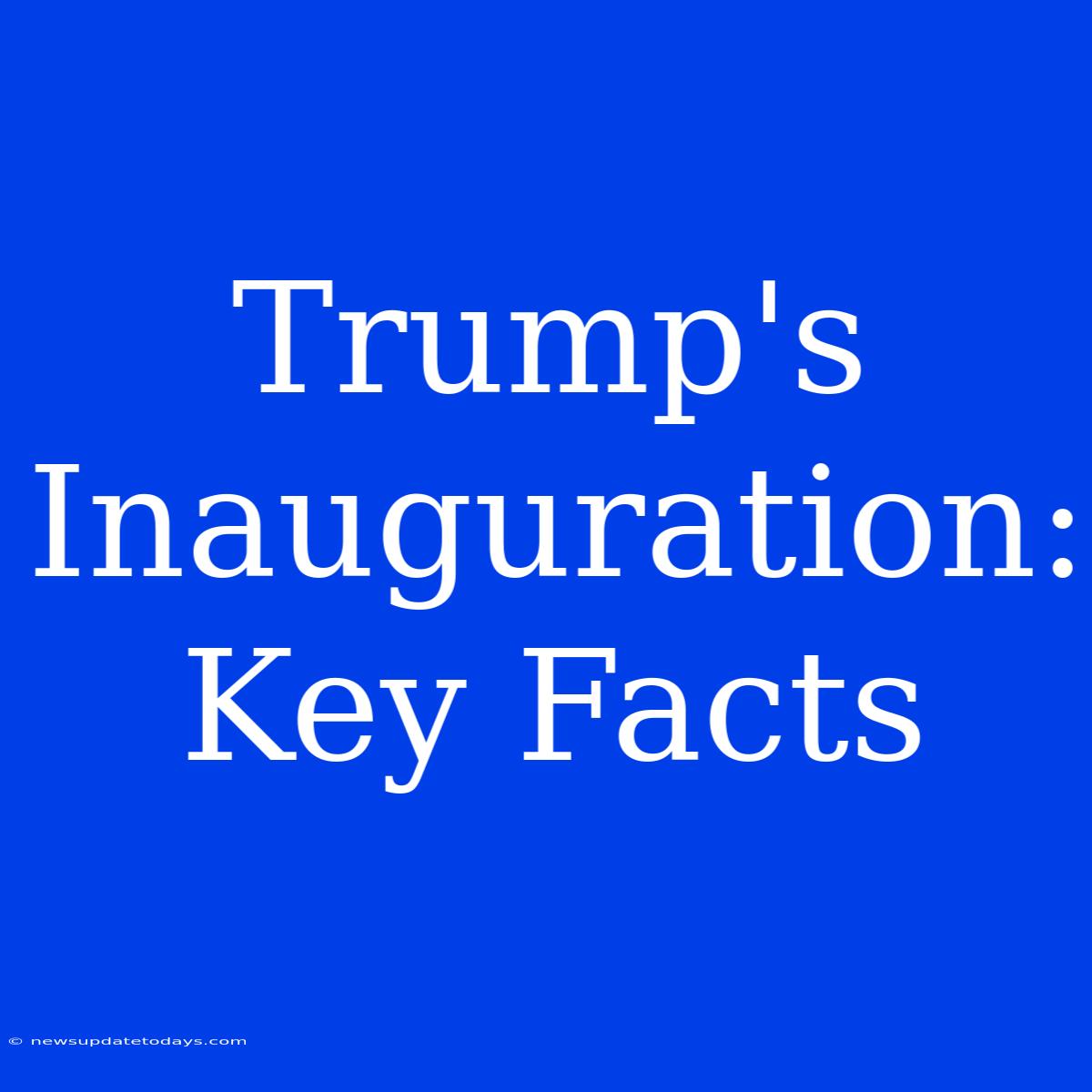Trump's Inauguration: Key Facts and Lasting Impacts
Donald Trump's inauguration as the 45th President of the United States on January 20, 2017, remains a significant event in American history, marked by both pomp and controversy. This article delves into the key facts surrounding the inauguration, exploring its unique aspects and lasting consequences.
Attendance and Atmosphere:
The inauguration drew significant attention, but the crowd size became a point of contention. Estimates varied widely, with the Trump administration claiming record-breaking attendance, a claim disputed by various media outlets and photographic evidence. The atmosphere was notably different from previous inaugurations, with a palpable sense of division and heightened political polarization.
The Ceremony Itself:
The swearing-in ceremony, held at the US Capitol Building, followed traditional protocol. Chief Justice John Roberts administered the oath of office, and Trump delivered his inaugural address, outlining his vision for his presidency. This speech, characterized by its populist tone and nationalistic rhetoric, set the stage for his four years in office. Notable performances included Jackie Evancho's rendition of the national anthem and the inaugural address itself.
Key Themes of the Inaugural Address:
Trump's inaugural address focused heavily on several key themes:
- "America First": This phrase became a central tenet of his administration, emphasizing a protectionist and nationalist approach to foreign policy and domestic issues.
- Economic Nationalism: He promised to revitalize American manufacturing, renegotiate trade deals, and prioritize American jobs.
- Law and Order: A strong emphasis was placed on combating crime and illegal immigration.
- Political Upheaval: The speech resonated with a sense of political disruption and a desire for change from the established political order.
Controversies and Reactions:
The inauguration was not without its controversies. These included:
- Crowd Size Disputes: As mentioned earlier, the discrepancies in crowd size estimates led to accusations of misleading the public.
- Security Concerns: The unprecedented level of security measures deployed in Washington D.C. generated discussions about the balance between security and public access.
- Protests: Large-scale protests took place both before and during the inauguration, highlighting the deep divisions within American society.
Long-Term Impacts:
Trump's inauguration marked a significant turning point in American politics. His presidency was characterized by:
- Shift in Political Discourse: His rhetoric and policies significantly impacted the tone and content of political debate in the US and globally.
- Policy Changes: His administration implemented significant changes in areas such as immigration, trade, and environmental regulations.
- Social and Political Polarization: His presidency exacerbated existing social and political divisions within the country.
Conclusion:
Donald Trump's inauguration was a pivotal moment in American history, characterized by contrasting narratives of hope and division. Understanding the key facts surrounding this event, including its atmosphere, the content of the inaugural address, and its subsequent impact, is crucial for comprehending the trajectory of American politics in recent years. Further research into the specific policy changes and social consequences of his presidency will provide a more complete picture of this historically significant event.

